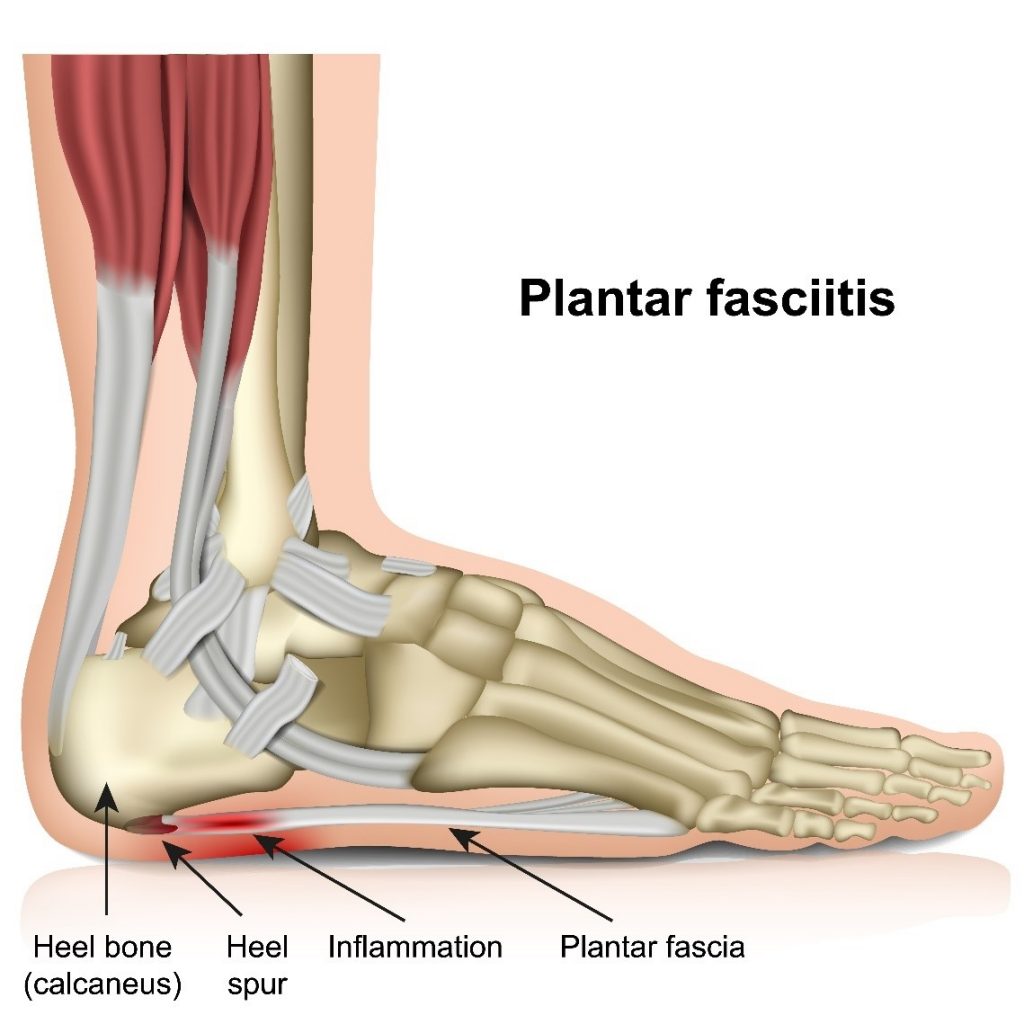Many of you may have heard of foot pain which is commonly referred to as 'Policeman's Foot', presumably because police were prone to this condition in the past when they walked the streets. Those suffering will feel pain in the heel and arch of the foot, typically first thing in the morning and then easing as you move more. Medically this has been described as Plantar Fasciitis. 'Itis' means inflammation and thus plantar fasciitis means inflammation of the plantar fascia, the latter being a thick band of tissue connecting the heel bone to the toes.
Plantar fasciitis is also increasingly referred to as plantar fasciopathy, as there is evidence that the subsequent pain is not just a result of inflammation and may be a result of overstimulation. This can lead to the tissue being less able to withstand strain placed on it.

What are the symptoms
The primary symptom of plantar fasciitis is pain slightly forward of the heel, where it is tender to the touch, but pain can be anywhere on the underside of the heel. The pain is most intense during the first steps after getting out of bed or after prolonged periods of sitting.
Gentle exercise may ease things a little. On the other hand, long walks, being on your feet for a long time or thin soled, unsupportive footwear often makes the pain worse.
Contributing factors
- Being overweight
- Tight calfs
- Wearing unsupportive or flat shoes
- Loss of arch in your foot
- Changes or overload to activity levels
- Jobs which involve standing for long periods of time
Treatment
Most cases of plantar fasciitis will get better by themselves, but can take weeks and anything up to 18 months to resolve without treatment.
Typical steps that you can take are:
- Relative rest from any aggravating factors
- Modifying your activities
- Pain relief and anti-inflammatories
- Ice can help relieve symptoms and will act as an anaesthetic when applied for 10 minutes two to three times a day
- A gel heel cup to lessen compression forces on the heel
- Self massage
- Roll golf ball under foot
If these don't help quickly enough, then we can help with improved diagnosis, appropriate treatment and a properly devised rehab plan.
Radial shockwave treatment is particularly successful at treating plantar fasciitis. Deep tissue massage of the calf muscles will lengthen the muscles and help to relieve tension on the plantar.
If you are suffering with heel or arch pain, which you want to resolve as soon as possible, we can help with both a high level of expertise and latest radial shockwave technology. Of particular importance to you, we do not charge extra for radial shockwave, even though we were one of the first clinics in the country to introduce radial shockwave. Many other radial shockwave providers charge premium pricing, but we do not.
Call Now 01889 881488. Erica & Jean will be happy to help

